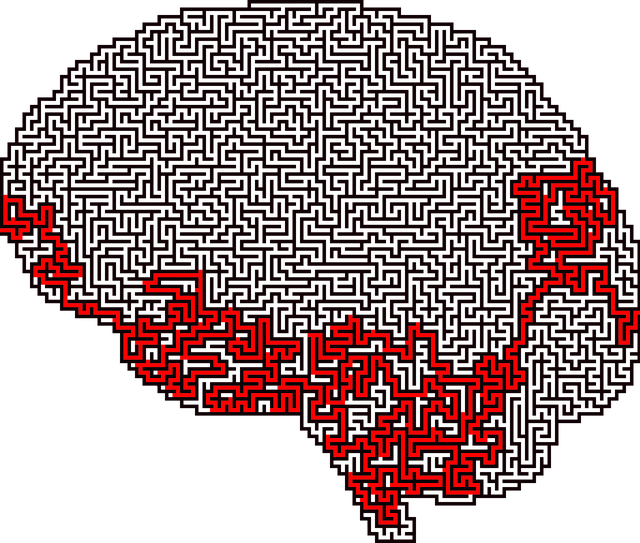Mental health risk management in Longmont Functional Neurological Disorder (FND) Therapy involves understanding patient vulnerability, therapeutic interventions, and systemic factors. Professionals utilize Burnout Prevention Strategies and a Community Outreach Program to enhance access to mental health services and reduce risks of untreated conditions. Cultural competency training is key to addressing diverse populations' unique symptoms and treatment preferences. Resilience building and emotional regulation strategies equip therapists to handle complex cases calmly, while robust safety measures protect both client welfare and practitioner resilience. Continuous evaluation and improvement, including depression prevention techniques and emotional well-being promotion, are essential for effective risk management in Longmont FND Therapy.
Mental health professionals constantly navigate complex risks, especially when addressing conditions like Longmont Functional Neurological Disorder (FND) therapy. This article offers a comprehensive guide to risk management planning, delving into understanding risk in mental health practice and identifying hazards specific to FND treatment in Longmont. We explore the development of robust risk mitigation strategies, safety implementation for client well-being, and continuous evaluation techniques. By adhering to these practices, professionals can ensure safe, effective care.
- Understanding Risk in Mental Health Practice
- Identifying Potential Hazards in Longmont FND Therapy
- Developing a Comprehensive Risk Management Plan
- Implementing Safety Strategies for Client Well-being
- Continuous Evaluation and Improvement in Risk Mitigation
Understanding Risk in Mental Health Practice

In mental health practice, understanding risk goes beyond recognizing potential hazards. It involves deeply comprehending the complex interplay of patient vulnerability, therapeutic interventions, and systemic factors that can either mitigate or exacerbate risks. Mental health professionals in Longmont Functional Neurological Disorder Therapy are at the forefront of this understanding, navigating nuanced scenarios where individual needs and collective imperatives converge. By integrating insights from Burnout Prevention Strategies for Healthcare Providers, they foster a resilient environment that prioritizes both patient well-being and professional sustenance.
Community Outreach Program Implementation plays a pivotal role in expanding access to mental health services, thereby reducing risks associated with untreated conditions. Stress Management Workshops Organization within these programs empowers individuals with coping mechanisms, enhancing their ability to navigate life’s challenges. This proactive approach not only mitigates risks but also promotes a holistic view of mental health, reflecting the dynamic nature of practice and the professional’s commitment to continuous learning and adaptation.
Identifying Potential Hazards in Longmont FND Therapy

Identifying potential hazards is a critical step in risk management planning for mental health professionals offering Longmont Functional Neurological Disorder (FND) Therapy. While FND therapy holds significant promise for treating individuals experiencing unusual and often distressing symptoms, it’s not without its complexities. One key hazard lies in the intricate nature of FND, which can present with varied and sometimes subtle manifestations. Mental health providers must remain vigilant to recognize these nuances, as misdiagnosis or inadequate treatment could exacerbate existing conditions or lead to iatrogenic harm.
Moreover, cultural competency training is paramount. Given the diverse populations seeking therapy, healthcare providers must be adept at navigating cultural differences that might influence symptom expression and treatment preferences. Insensitivity or a lack of understanding could create barriers to effective care. Incorporating Mental Health Awareness into risk management planning enables practitioners to anticipate and mitigate potential issues related to client demographics, personal beliefs, and familial support systems.
Developing a Comprehensive Risk Management Plan

In developing a comprehensive risk management plan for mental health professionals, particularly those practicing Longmont Functional Neurological Disorder Therapy, it’s crucial to integrate strategies that foster resilience building and emotional regulation. This proactive approach ensures therapists are equipped to navigate complex client scenarios with equanimity, enhancing their ability to provide consistent care. By incorporating structured stress reduction methods into their daily routines, professionals can mitigate potential risks associated with high-stress work environments.
A robust risk management plan should encompass a multifaceted strategy that includes regular self-care practices, supervision, and clear guidelines for handling crises. For therapists specializing in Longmont Functional Neurological Disorder Therapy, this might involve tailored techniques for managing intense emotions, setting professional boundaries, and prioritizing personal well-being. Ultimately, such planning cultivates a resilient practice environment where both professionals and clients can thrive.
Implementing Safety Strategies for Client Well-being

Implementing safety strategies is a cornerstone of risk management planning for mental health professionals, especially those specializing in Longmont Functional Neurological Disorder Therapy. These strategies are designed to safeguard both client well-being and practitioner resilience against potential risks and challenges unique to this field. By prioritizing burnout prevention strategies for healthcare providers, mental health professionals can create a supportive environment that fosters healing and recovery.
Effective risk management involves proactive measures such as establishing clear boundaries, implementing supervision protocols, and integrating depression prevention techniques into therapy sessions. These practices not only mitigate the risks of harm but also contribute to the overall sustainability of practitioners’ careers. A well-structured safety net enables mental health professionals to navigate complex client cases while maintaining optimal levels of care and professionalism.
Continuous Evaluation and Improvement in Risk Mitigation

Mental health professionals play a critical role in fostering emotional well-being and promoting self-esteem improvement among their clients. However, this work is not without risks. To effectively mitigate these risks, continuous evaluation and improvement processes are essential components of risk management planning. Regularly assessing and updating treatment strategies allows professionals to adapt to the unique needs of each client and stay abreast of emerging research in the field.
By integrating emotional well-being promotion techniques into their practices, mental health practitioners can enhance their ability to identify and address potential risks proactively. For instance, Longmont Functional Neurological Disorder Therapy focuses on comprehensive risk assessment to tailor interventions that support clients’ mental health journey. This dynamic approach ensures that risk management remains an ongoing process, fostering a safer and more supportive environment for both professionals and those they serve.
Mental health professionals play a vital role in fostering well-being, but they are not immune to risks. Navigating the complexities of Longmont Functional Neurological Disorder (FND) therapy underscores the importance of robust risk management planning. By identifying potential hazards and developing comprehensive strategies, therapists can ensure safe practice and enhance client outcomes. Continuous evaluation and adaptation of risk mitigation tactics are essential in this dynamic field, ensuring professionals remain equipped to handle challenges effectively. Implementing these safety measures is a game-changer for both practitioners and those they serve.














